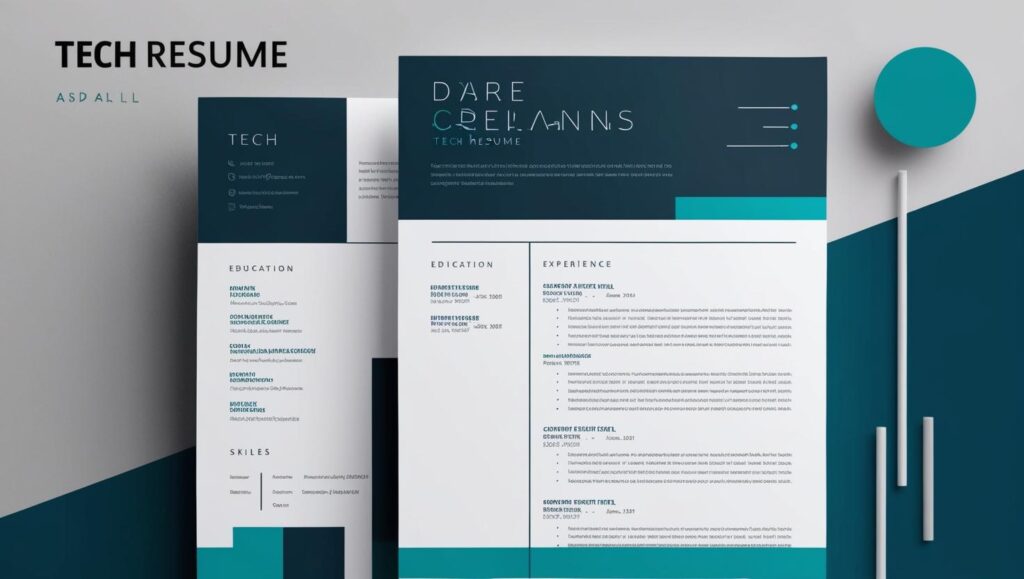In the competitive world of technology, having a resume that stands out is crucial for landing your dream job. With an ever-growing pool of talented individuals, crafting a tech resume that captures attention requires a blend of strategic content and polished presentation. This article delves into the essentials of creating a standout tech resume and offers strategies to ensure your application doesn’t just blend into the stack on a recruiter’s desk.
Master the Art of a Standout Tech Resume
Creating a standout tech resume is both an art and a science. At its core, a resume should reflect your technical expertise, while also showcasing your individuality. It’s essential to remember that first impressions matter; a recruiter often spends just a few seconds on an initial scan. This means your resume must be clear, concise, and compelling from the get-go. Begin with a strong summary statement that encapsulates your professional identity and unique value proposition. This section should be a snapshot of who you are, what you do, and what you can bring to a potential employer.
Technical skills form the backbone of any tech resume. However, simply listing skills is not enough; illustrating them through tangible achievements in previous roles is crucial. Use quantifiable details to demonstrate your proficiency. Whether it’s the percentage by which you improved software efficiency or the scale of a successful project you led, numbers speak volumes. Moreover, don’t shy away from highlighting your contributions to open-source projects or tech communities, as these demonstrate initiative and passion beyond your job responsibilities.
Design is another key element in crafting a standout resume. A clean, professional layout enhances readability and shows attention to detail. Use a modern, sans-serif font and maintain consistency in headings, bullet points, and spacing. Additionally, make smart use of white space to prevent sections from looking cluttered. Remember, your resume is a reflection of your professionalism, and a well-organized document can set you apart as a candidate who values quality and precision.
Key Strategies to Capture Recruiters’ Attention
To capture a recruiter’s attention, tailoring your resume to each job application is paramount. Carefully read job descriptions and align your skills and experiences with the requirements of the position. This targeted approach not only demonstrates that you’ve done your homework but also makes it easier for the recruiter to see your potential fit within the company. Highlight specific keywords used in the job posting, as many companies use automated systems to filter resumes based on these terms.
Emphasizing soft skills can also be a differentiator in the tech industry. While technical prowess is expected, qualities like communication, leadership, and problem-solving are highly valued. Use your resume to tell a story of how you effectively collaborate with teams or manage complex projects. Integrated into your work experience section, these narratives can paint a fuller picture of your capabilities and interpersonal skills, making you a more attractive candidate.
Finally, don’t underestimate the power of a strong online presence. Include links to your LinkedIn profile, personal website, or GitHub repository, where hiring managers can find extended information about your work and accomplishments. This not only adds depth to your resume but also showcases your initiative and engagement with the tech community. By providing these additional resources, you create opportunities for recruiters to explore your work further, increasing the chances of making a lasting impression.
In the fast-paced technology sector, securing attention with your resume requires a thoughtful blend of strategy and personal branding. By mastering the art of creating a standout document and implementing key strategies to capture recruiters’ attention, you position yourself as a compelling candidate ready to tackle new challenges. Remember, your resume is more than a list of past jobs—it’s a marketing tool that, when crafted effectively, can open doors to exciting career opportunities.


